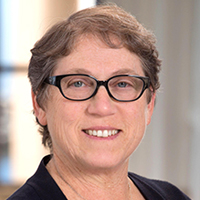
The Covid pandemic taught us a lot about being better advisors to our clients. This “live lab” gave us the opportunity to put our years of training and thought into a real lens and rethink what our futures could and should be. We re-examined important issues with our clients, including reassessing life goals, budgets, emergency funds and estate plans. And in many aspects, we had their attention and interest in ways we never really did before. But I didn’t realize that lens could and should be even sharper.
Then, toward the end of the pandemic, I was diagnosed with stage 4 metastatic melanoma. I was rushed to the ICU where I lived for 10 days while a very impressive medical team saved my life. Thanks to their continuing care, and excellent medical insurance, I’m alive 18 months later, and functioning fairly well. What I learned about the inadequacies of my own planning is humbling.
My personal “live lab” taught me much more than I could have ever guessed about what we might sometimes miss or gloss over in the work we do with our clients. Because my own age and circumstances are the same as the target audience for Rethinking65, I am hoping that sharing with you a few things I discovered on my medical journey can help you and your clients in the important planning work you do together.
Scrutinize disability policies more deeply
Many of our clients receive their disability insurance through work. As planners, we diligently make sure our clients sign up for every possible bit of disability insurance available to them. Then we typically plug into our planning numbers the coverage based on the overview information sheets provided in the benefit packages. In my own case that’s what I did and I’m embarrassed to confess I didn’t understand some key facts about my coverage.
Mainly, my group plan benefit would be reduced by anything I receive from anywhere: Social Security, state disability, residual pay from work, sick leave, vacation leave etc. And because I was 68 years old, the plan, unbeknownst to me, would only pay for 13 months of coverage, not until age 70 as I had thought.
Should I have known better? Yes! Had I requested a copy of the actual plan and read it, I would have figured it out in advance how the insurance company calculates the duration of benefits based on age and then put the right numbers into my planning software. While knowing all this probably would not have prompted me to buy any supplemental insurance, given my own facts and circumstances, it would have helped manage expectations when applying for benefits.
As planners, knowing these actual figures might prompt us to recommend that many clients purchase supplemental insurance or bolster emergency reserves to cover potential shortfalls. I’m empathetic that it is very time consuming to read all these plans in detail. Leaning on the broker of the plan to help learn these fine points can help, but there’s no substitute for thoroughly reading the actual policy. Since benefits adjust yearly and clients change jobs, keeping on top of changes is equally important.
It takes a village
For many months although I was alive, I was simply too sick to deal with anything important. I could do a decent amount of personal self-care (so my long-term care policy was useless), but my ability to reason was sketchy. I could barely send a text and I couldn’t think deeply enough to write so I couldn’t email. It wasn’t safe for me to drive even to get groceries. So how do you draft an estate plan to create coverage for handling someone’s entire life while they are still alive but functionally somewhat incompetent? I’m not sure we think about that as deeply as we should.
An ill client may require one or more people to:
- Handle all the intense paperwork of being sick (filing and managing health insurance claims, applying for disability insurance and Social Security, etc.).
- Handle the daily living needs (paying the bills, filing income taxes, grocery shopping, laundry, home maintenance, and housekeeping).
- Coordinate all the members of the medical team and all the medications, drive to doctors’ appointments, advocate and implement — including looking into clinical trials and coordinating different treatment options.
- Serve as social secretary and coordinate all the beloved, well-meaning friends and relatives (and bagels!); keep everyone informed; and ensure the patient feels loved but not overwhelmed.
In thinking about all these roles, you’d be hard pressed to find a team to deal with these very diverse aspects. Even if you could, the costs would be tremendous. Unfortunately, naming trustees and providing Powers of Attorney for various matters is often not nitty gritty enough.
Don’t assume family can bear the full burden
As our clients age, it’s essential that we encourage them to think through possible real-life scenarios and discuss in depth with family members what roles they not only can do but are willing and able to do — and if they will need to be compensated for them. After all, it’s likely that some family members will have to reduce their work hours or take a leave of absence in order to assist your client. We should offer to lead these conversations and we can also help with the next step: helping them find local professionals to interview for gaps in coverage and figuring out the costs of each member of the team.
In my case, I am so fortunate because my daughter actually left her career to take care of all these roles for me. I honestly am not sure if I’d be alive today if she hadn’t. Although the availability of home-care and other providers is higher where I live than in most parts of the country, how would I have coordinated that? How would I have supervised them? What if they didn’t show up? So, another role: coordinator of the team!
Prepare for double trouble
We also need to think about dual track planning for married clients. It’s rare that both spouses will experience the same needs in the same timeframe. And as we age, often one spouse becomes the other’s caretaker. What happens if neither is able to fill that role?
To give you an example of the importance of this type of planning, I’ll share with you that I am the full-time caretaker for my husband who has dementia. When I fell ill and moved to the ICU, not only was he unable to assist me, he also needed uninterrupted caretaking and a replacement for me.
Our estate plan had granted my daughter the power to hire help and then move him to memory care. Even with such legal provisions in place, implementing them is often not smooth nor quickly accomplished. Good caretakers are hard to find, and a memory-care facility needs to be willing and able to accept a new resident. The planning requires lots of time, energy and paperwork — and doctors must also be available and willing to sign off on the move.
A deeper dive
Back to that nitty gritty theme. I think that in general, advisors do an excellent job working with clients to create and update their estate plans and making sure that beneficiaries, trustees and granting powers are in place. However, we could add tremendous value in this aspect of planning by helping clients and their estate-planning team get into the weeds in much greater detail regarding what is, what could be, and what would be the best outcomes.
As advisors, we are well positioned to dive deeper on all these issues covered in this column, as well as all those I didn’t cover. We already have our client’s trust and they know we care. While some of these conversations may feel uncomfortable at first, everyone will be very prepared and your clients will be very well served if we focus on the importance of addressing these issues as possibilities before they become reality.
Lynn Ballou, CFP Emeritus, retired as a senior vice president/partner of EP Wealth Advisors in June 2022. She also retired in 2022 as the CFP Board of Standards Ambassador for the San Francisco Bay Area. She can be reached via LinkedIn.







